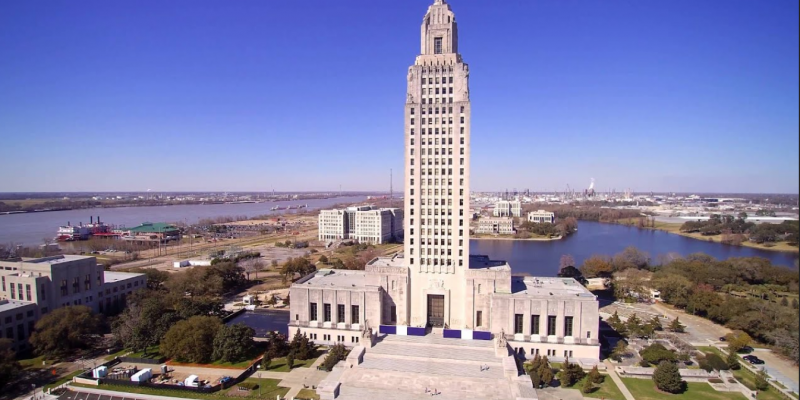On the budget, Louisiana’s Republican legislative majority will have to choose.
The strong majorities in each legislative chamber know that Democrat Gov. John Bel Edwards will spend everything he can to keep inflated state government a reality. The outgoing Legislature gave him the chance by foolishly extending a temporary sales tax increase seven years. Occurring simultaneously with federal tax law changes that boosted state income tax receipts, the state likely for the next few years will take too much money from the people.
But for use the excess collection, constitutionally, must garner recognition from the state’s Revenue Estimating Conference. Here, as Republicans demonstrated earlier this month, the veto power each legislative chamber has can prevent this, in effect forcing the spending of fewer dollars. In essence, if not recognized officially even if in fact collected, the money would just pile up.
While the Edwards Administration cries that political considerations circumscribes (in the latest instance, by about 0.3 percent) money available for spending, in any instance plenty of economic justification exists. Recognition depends upon forecasts which have averaged in the two percent error range historically, so if error tolerance decreases among policy-makers, greater reason exists to not approve of predictions that increase the amount eligible for spending.
And there’s more than a whiff of hypocrisy emanating from Edwards and his Commissioner of Administration Jay Dardenne on this issue. In the latest dustup, outgoing Republican state Rep. Cameron Henry preached economic caution as his reason for not accepting a forecast increase for this and next budget years, attracting Dardenne’s critique. Yet when Henry and others in the GOP argue to roll back the sales tax hike early, if not next year, Dardenne and Edwards fall back on the same argument of economic caution to justify not doing so.
However, the Constitution doesn’t require any reason at all, economic or political, to reject forecasts. So, if the GOP legislative majority wishes to continue doing that, it can. And if and when it ever decides to start recognizing higher forecasts, the “new” dollars only can go to certain nonrecurring purposes, which in part would subvert the Edwards agenda.
Advertisement
Yet note how this strategy, perhaps the easiest to rein in unrestrained spending on items with recurring costs, contradicts a more difficult but permanent fix that restores the people’s money to them. If you aren’t officially running surpluses, then it becomes hard to argue that the people aren’t chronically overtaxed. They would be in fact doing that with that excess squirreled away in accounts for use (either drawn out for future recognition for nonrecurring things or, if revenues slow, as a buffer to make up deficits), but no political argument could be made to reverse the hike, and policy-makers would have to depend upon the tax’s 2025 expiration for citizen relief.
So, the easy way solves for overspending, but not for overtaxation. Keep in mind, however, that any tax relief the majority might pass would have to go through Edwards, with an override of his certain veto a dicey proposition. That’s why the harder way, which solves for both, is the harder way. Similarly, the 98 percent solution would hold down spending but keep taxes too high, with the only difference that it leaves more latitude to spend banked money (unless projections fall short) in the future on current operations.
Thus, Republicans must choose, and soon. They can’t argue for tax cuts during the next session without an officially forecast surplus, all while trying to budget. Either they can go with the certainty of a half of a loaf, or risk higher spending if they go for and fail to get the entire loaf, at least for the next fiscal year.
Advertisement
Advertisement

